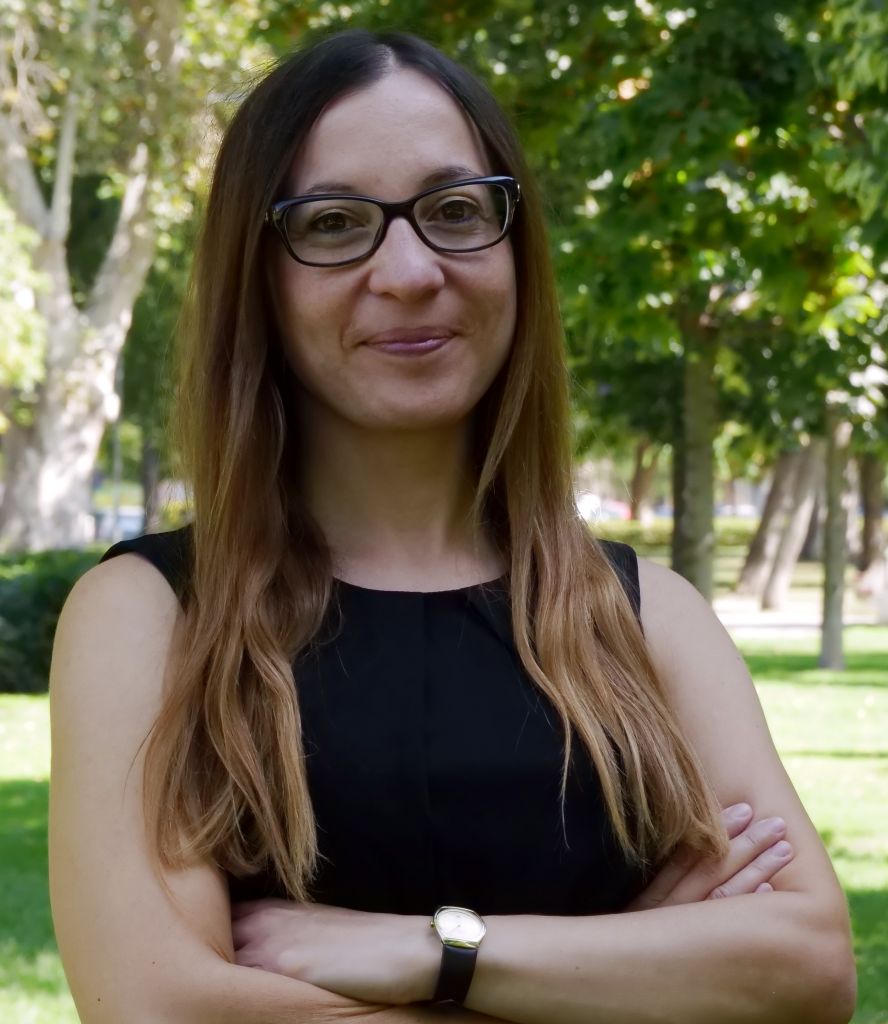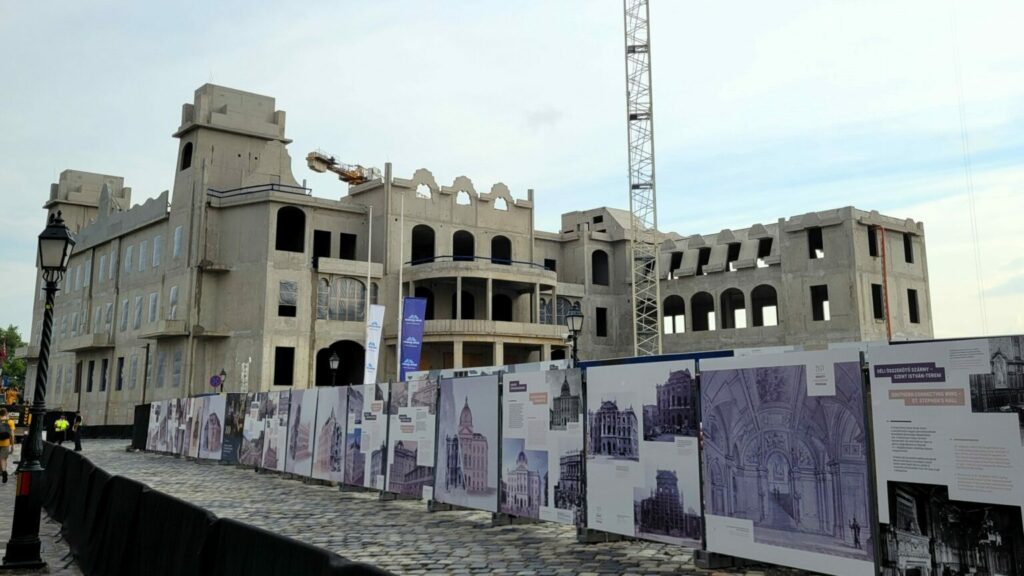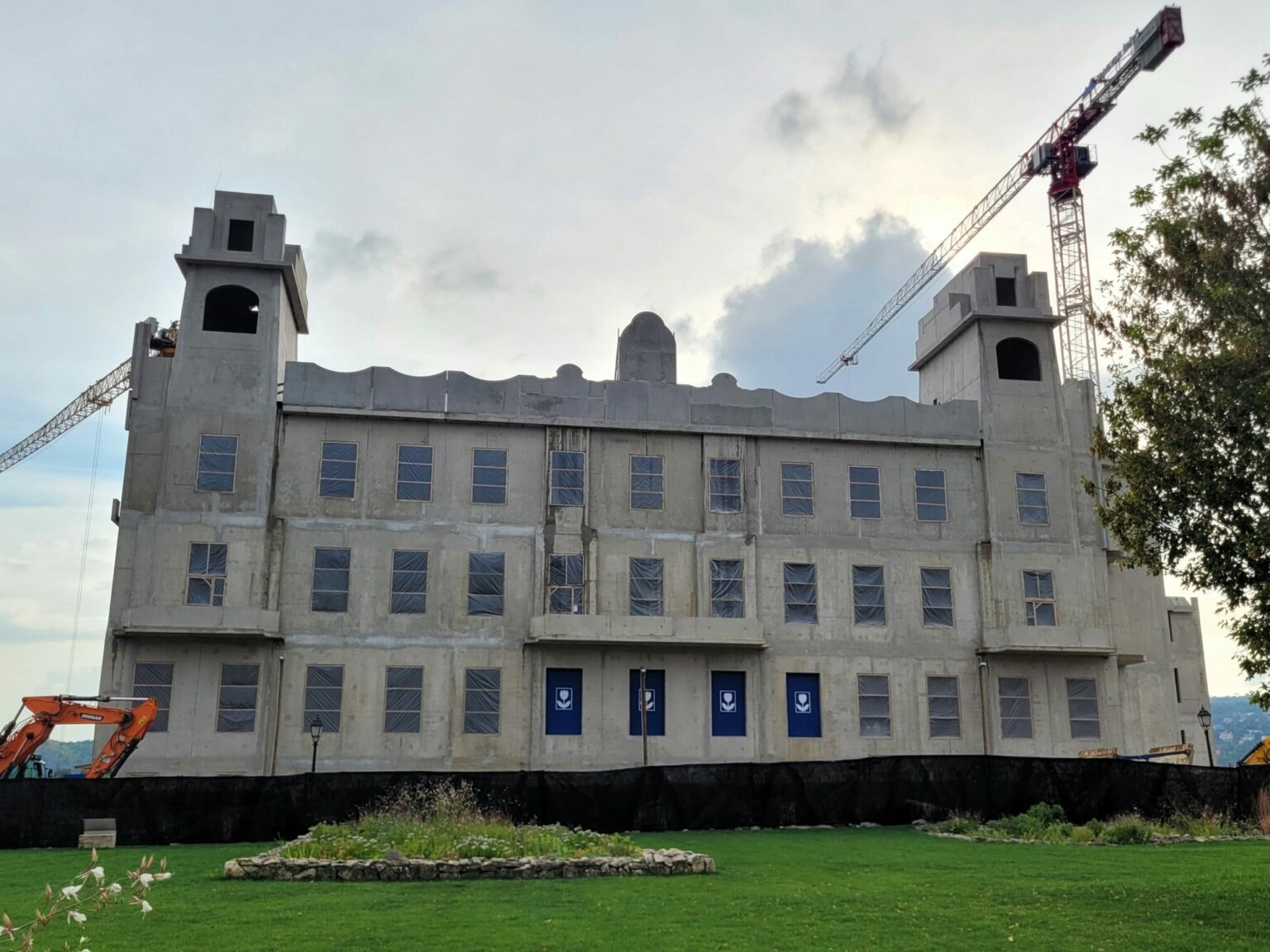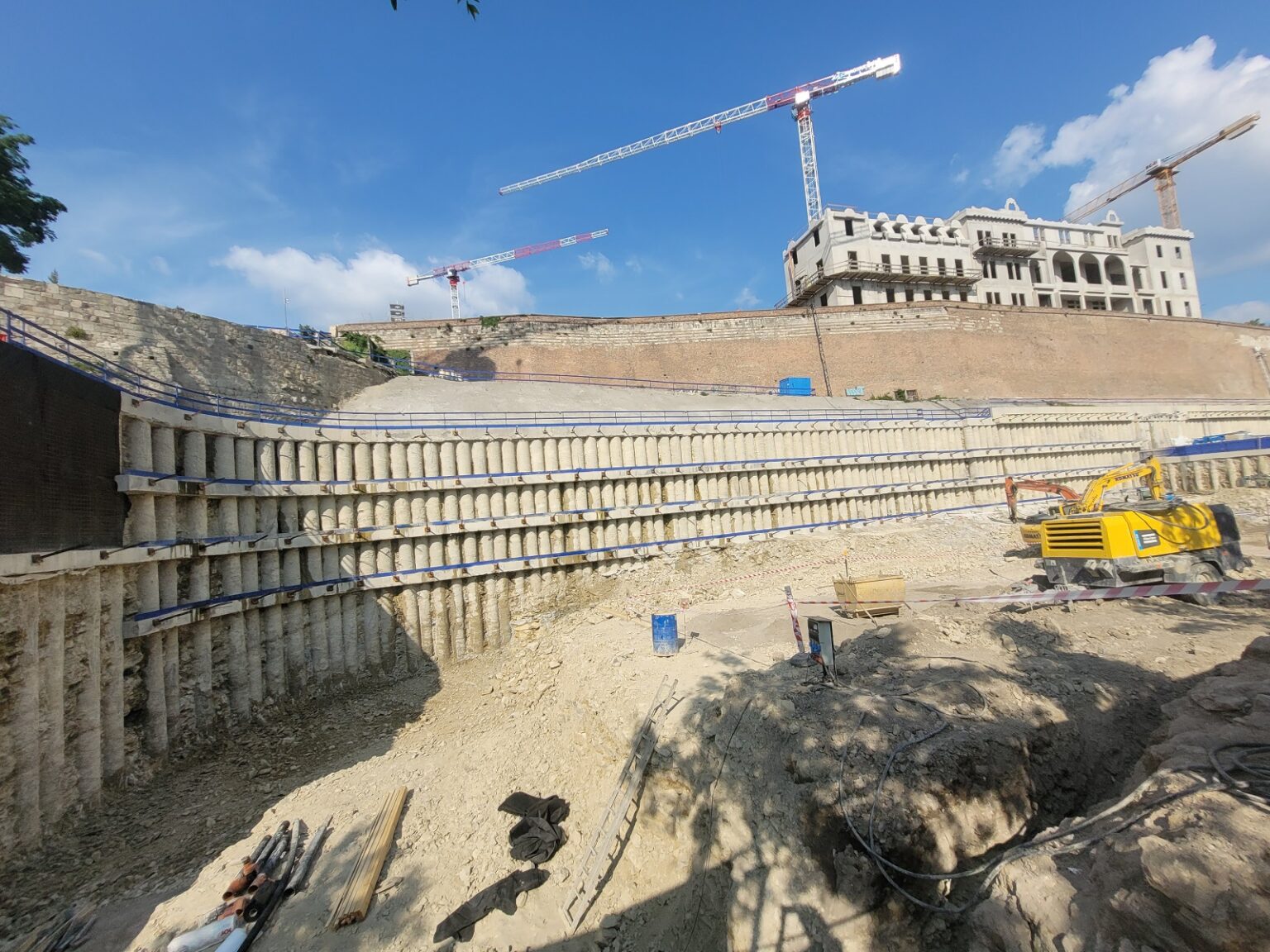The https://english.atlatszo.hu use cookies to track and profile customers such as action tags and pixel tracking on our website to assist our marketing. On our website we use technical, analytical, marketing and preference cookies. These are necessary for our site to work properly and to give us inforamation about how our site is used. See Cookies Policy
HUF 53 billion was not enough for the Archduke Joseph’s Palace and underground car park
Cranes, cordons, containers, and the gigantic grey concrete skeleton of Archduke Joseph’s Palace under construction welcome tourists to Buda Castle, while Várkapitányság Nonprofit Zrt., who is managing the project, do their utmost to keep the government’s behind-the-scenes money-spinning under wraps. The cost has not been disclosed, so we have filed a FOI request to find out how much the palace, which is under construction at full steam during the emergency, is costing taxpayers.
In response to our previous FOI request, we wrote about the price of the first two phases of the project, and now we have received the third phase. It turns out that they are way over budget and have no idea how much it would cost to complete the palace.

Asked about the gross amount available, we received the following answer: “The amount available for the realisation of the investment, which is also included in our company’s annual report for 2022, is 23 998 608 eFt.” This means that the gross public funding available for the construction of the Palace amounts to HUF 24 billion.
The total amount is unknown
So far, contracts have been signed for three phases for a total net amount of HUF 24.4 billion, which amounts to HUF 31 billion gross. This means that the budget has been exceeded by HUF 7 billion gross (30 per cent), with no contract yet signed for the fourth phase of the works.
It means it is unknown yet where the counter will stop. Asked how much the complete construction would cost, we received the following reply: “As there is no contract for the last phase, the total amount is not yet available.”
HUF 22 billion underground car park
Visits to the palace will involve heavy car traffic, so an underground car park will be built. On the site, you can see a huge working pit in the side of the castle, which has resulted in the felling of half a hundred trees. There was no public procurement for this project either.
As with the palace, Magyar Építő Zrt. won the tender. The cost of the construction is HUF 17.5 billion net, which is HUF 22.2 billion gross. The amount available for the underground car park, as indicated in the 2022 report of the Castle Authority, is HUF 18.9 billion gross, which means that the budget was exceeded by HUF 3.3 billion gross.
The total gross value of the contracts for the palace and the underground car park to be built to date is therefore HUF 53 billion,
but this does not include the price of the last phase. The total funding available for the two projects amounted to HUF 43 billion, which means that they have already exceeded this budget by HUF 10 billion.
Contractor chosen from a secret list
We last reported that the project was not put out to tender for reasons of national security. This time, we tried to find out how the Magyar Építő Zrt. proved to be a reliable partner and how they ensured during the procurement that the company would not misuse national security information. We learned that the contractor was selected from a list kept by the Constitution Protection Office. However, we have not been able to find out which companies are on this elite list.
In 2010 Transparency International Hungary wanted to see this list and sued the Constitutional Protection Office. The NGO won the case at first instance, but lost at appeal and then at the Supreme Court.
The function of the palace is hidden
The palace is being built as part of the National Hauszmann Programme, one of the aims of which is to restore some of the public buildings destroyed in the Second World War. Archduke Joseph’s Palace is being rebuilt fom scratch, and a medieval ruin field was previously on its site. The building was damaged during the Second World War and was not restored, but demolished and cleared away in the 1960s.
The construction work in the Castle is such a spectacle that
officials are not even saying what the function of the palace will be.
The initial communication was that it would be an office building. Then Mandiner, the newspaper which belongs to the pro-government Central European Press and Media Foundation group wrote that the Constitutional Court would move into the building. However, we did not receive an answer to our question on this in our FOI request.
The investment fuels a company close to the government
The construction of the palace and the underground car park was contracted to the Magyar Építő Zrt., which is close to the government. The company is a favourite of the Fidesz government when it comes to public procurement. Its co-owner is Attila Paár, a billionaire who is one of the 50 richest Hungarians according to the Forbes list.
G7 recently found evidence that the company is entirely dependent on state contracts. In 2022, the company had a profit of HUF 7.7 billion on net sales of HUF 50 billion.
Since the construction of the palace began, the Hungarian government has said the country has been in a constant state of emergency, and it has not slowed down during the energy crisis and the slashing of public investment. The country went into emergency mode in 2020 due to Covid-19, and then last May due to the Russian-Ukrainian war. As a result, the government has halted the construction or renovation of several schools and roads, but the palace in the Castle continues to be built.
Translated by Zita Szopkó. The original, more detailed Hungarian version of this story was written by Szilvia Zsilák and can be found here. Cover photo: The Archduke Joseph’s Palace under construction in September 2023. Photo by the author.
Share:
Your support matters. Your donation helps us to uncover the truth.
- PayPal
- Bank transfer
- Patreon
- Benevity
Support our work with a PayPal donation to the Átlátszónet Foundation! Thank you.
Support our work by bank transfer to the account of the Átlátszónet Foundation. Please add in the comments: “Donation”
Beneficiary: Átlátszónet Alapítvány, bank name and address: Raiffeisen Bank, H-1054 Budapest, Akadémia utca 6.
EUR: IBAN HU36 1201 1265 0142 5189 0040 0002
USD: IBAN HU36 1201 1265 0142 5189 0050 0009
HUF: IBAN HU78 1201 1265 0142 5189 0030 0005
SWIFT: UBRTHUHB
Be a follower on Patreon
Support us on Benevity!



